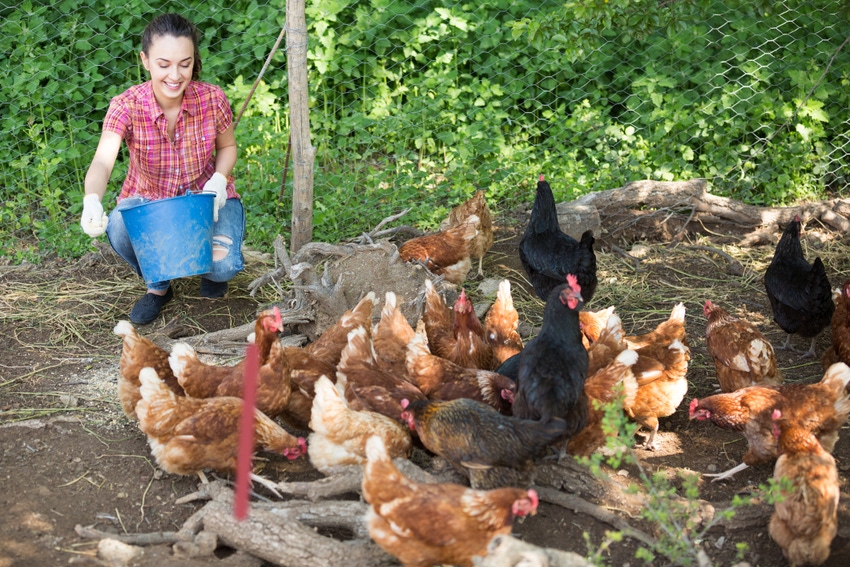Passive surveillance project uncovered presence of certain worrisome pathogens in backyard raises concerns for poultry health specialists.
August 30, 2019

In many urban and suburban areas, it has become increasingly popular for people to keep chickens or ducks in their backyards, but University of Guelph researchers said there has been little research into how many of these backyard birds may be carrying dangerous pathogens or what flock owners are doing to prevent pathogens from spreading.
Now, University of Guelph researchers have discovered that many Ontario backyard birds are carrying dangerous pathogens, and a significant number of flock owners are not following proper hygiene practices.
“This is the first study to look at the health status of small flocks in Ontario,” said professor Leonardo Susta, who works in the department of pathobiology at the University of Guelph’s Ontario Veterinary College.
Conducted in collaboration with colleagues at the University of Guelph Animal Health Laboratory (AHL) and the Ontario Ministry of Food & Rural Affairs (OMFRA), the research was published in two papers in the Journal of Veterinary Diagnostic Investigation.
The team asked small flock owners to voluntarily submit any birds who died on their properties to AHL for a postmortem examination. They also asked the owners to fill out a questionnaire about their infection-control practices.
They received 245 specimens from 160 flocks, the researchers said, and most of the flocks consisted of 25 or fewer chickens kept for the purpose of laying eggs for family use.
Infectious diseases were the most common killer, the team found, causing 62% of deaths. Mixed respiratory disease (caused by a combination of bacteria, viruses and fungi) was found to be the primary cause of death in 21% of the birds, and Marek’s disease, which causes fatal tumors, caused 11% of the deaths, the researchers reported in an announcement.
In addition to these pathogens, the research team also found a number of chickens with mycoplasma, a bacterium that causes respiratory disease.
“This is a disease that is rarely seen in commercial flocks, yet one in five birds in this study were carrying the pathogen,” Susta said.
The researchers also found several birds with campylobacter, a bacterium that can lead to severe food poisoning in people.
“The fact that we found so much campylobacter is a testament to the fact that biosecurity measures need to be followed,” he said.
The questionnaires revealed that while some flock owners had good knowledge of proper hygiene practices when interacting with the birds, many were not taking enough precautions to avoid the spread of disease.
“We wouldn’t expect backyard chicken owners to apply the same biosecurity practices used with commercial flocks, but there are certainly steps that flock owners should be taking,” Susta said.
According to the announcement, fewer than 50% of owners reported having dedicated shoes or clothing for entering their poultry coops or barns, less than 5% reported using a foot bath and more than 60% reported allowing visitors into the coop or barn, which is not recommended.
“Many also allowed their birds to stray outside the coop or barn, where they might have access to wild birds or their habitats,” Susta noted.
Wild birds are considered potential reservoirs of many pathogens, and increased contact among birds could allow the spread of several infections, including avian influenza, he added.
Only 37% of owners who said they bought their birds from hatcheries answered that their birds were vaccinated at hatch — a key step that could prevent several diseases including Marek’s disease.
Given that this was a “passive surveillance” research project in which all participation was voluntary, the researchers said the flocks they tested may not be representative of all small flocks within Ontario.
However, Susta said the fact that they uncovered the presence of certain worrisome pathogens is cause for the concern.
“These results underscore the importance of flock owners obtaining birds from reputable sources, of monitoring birds for illness and of practicing proper sanitation and hand hygiene to protect both the birds and the public,” he said.
Source: University of Guelph, which is solely responsible for the information provided and is wholly owned by the source. Informa Business Media and all its subsidiaries are not responsible for any of the content contained in this information asset.
You May Also Like



